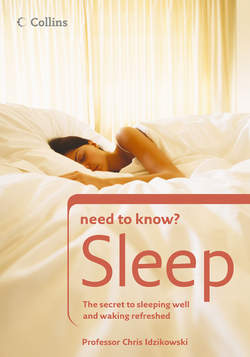Читать книгу Sleep: The secret to sleeping well and waking refreshed - Prof. Idzikowski Chris - Страница 80
Light
ОглавлениеLight can have a profound effect upon our wellbeing, both consciously and unconsciously. The conscious effects of light have been known for many years. Numerous studies have shown that subjects exposed to bright light experience significant improvements in mood and a decrease in feelings of tiredness. Indeed, conditions such as Seasonal Affective Disorder (SAD – see page 17) are even treated by exposure to bright light. In recent years, scientists have learned that it is blue light (or natural skylight) that has the greatest effect on our sleeping patterns, because of the unique and very special influence it has on our internal bodyclock – the mechanism that determines what time we go to sleep at night and get up in the morning. (See The brain’s metronome, see page 16).
Any disruption to the bodyclock can lead us believe that it is daytime rather than night, and to react accordingly. Blue light, it is believed, also inhibits the night-time secretion of melatonin, the hormone that signals the onset of darkness (see page 16), thus preventing or disrupting sleep. (When it is dark, melatonin secretion rises and peaks at the darkest time and then goes down until dawn, when the biological clock is reset to wake.) The effects of blue light are unconscious.
There are also conscious effects of perceived light: the brighter the light in your bedroom, the more alert and less sleepy you will feel. Taking lux as a measurement of light intensity (see the table below), normal indoor lighting measures around 200 ‘lux’, while a cloudy day is around 10,000 ‘lux’ – significantly lighter, which makes it crucial to block it out as much as possible when you go to sleep. If you cannot control the amount of light you are exposed to and don’t want to hide your eyes with a pillow, consider using an eye mask.
